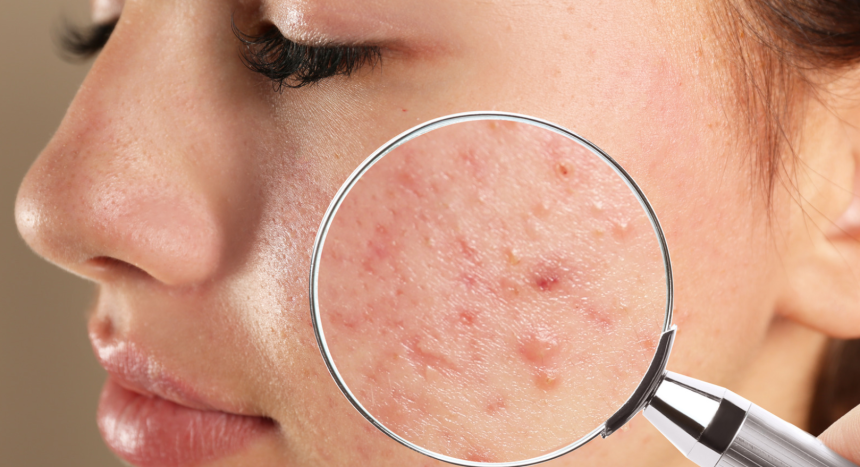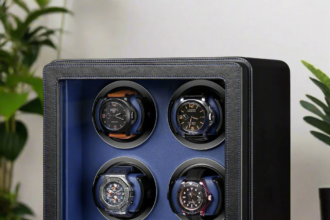Acne is a common skin disease when the pores on the skin are blocked by sebum (a fatty substance secreted by the sebaceous glands of the skin), bacteria and dead skin cells, hair. These blockages form blackheads (acne), whiteheads, nodules, and other types of rashes on the face or other parts of the body. For clear skin, you should choose the products and skin care manufacturer that are best for you. Because, although this inflammatory disease most often occurs during puberty, when many changes occur in our body, primarily hormonal, this does not mean that acne cannot occur in adulthood.
The main causes of acne?
Sebaceous glands are tiny glands that are located near the surface of the skin. Sebaceous glands secrete sebum, which lubricates and nourishes hair and skin. With acne, the glands begin to produce too much sebum. Excess sebum mixes with dead skin cells, resulting in the formation of a plug in the follicle.
If the blocked follicle is close to the surface of the skin, it bulges outward, creating a whitehead. Its top darkens (oxidizes). Normally harmless bacteria living on the skin can contaminate and infect blocked follicles, causing acne, papules, abscesses (pustules), nodules, or cysts.
The influence of hormones on the occurrence of acne
There is a close relationship between acne and hormonal changes. That is why women often cannot get rid of acne even in adulthood, unlike men, in whom the formation of acne stops after maturation. The formation of acne in women is caused by hormonal disorders, for example, pregnancy, menopause or menstruation.
In addition to hormones and heredity, facial care and cosmetics, stress, lifestyle, bacteria in the pores, use of anabolic steroids or drugs containing lithium, barbiturates or androgens also affect the formation of acne.
How to get rid of acne
Acne is partially caused by genetics, so there is no guaranteed way to completely cure it. But you can significantly reduce the signs of acne and minimize the consequences (such as small scars). What helps with acne?
Care for problem skin
Proper skin care will help you fight acne.
- The basis of this care is well-cleansed skin, where there is no place for unwanted bacteria that cause inflammation. Cleanse the skin twice a day in the morning and in the evening. Buy a good quality anti-acne micellar water or anti-acne cleansing gel. Use alcohol-free cleansers that won’t irritate or dry your skin. Dry skin tends to produce more sebum.
- Cleansed skin needs moisturizing. Use an anti-acne ointment or cream, which will speed up the healing of acne, preventing the formation of new ones.
- At night, apply a topical anti-acne treatment to the pimples, which promotes rapid healing.
- Once a week, use an exfoliating treatment for problem skin to remove dead skin cells, or a deep-acting acne face mask to exfoliate and mattify your skin.
Factors that can cause acne and/or worsen the course of acne:
- Fluctuations in the level of hormones during menstruation in women.
- Independent “squeezing” of blackheads.
- Clothing and headgear: hats, sports helmets, etc.
- Regularly wearing objects that put pressure on the affected area of skin, such as straps or a backpack.
- Air pollution and certain weather conditions, especially high humidity.
- Using oily personal care products (for example, heavy lotions, creams, waxes or lipsticks).
- Working in places where you regularly come into contact with grease (for example, working in a restaurant where there are greasy food surfaces and frying oil).
- Stress, which increases levels of the hormone cortisol, can also trigger acne breakouts.
- Some medicines – such as steroid hormones, some medicines used to treat epilepsy, depression and bipolar disorder, etc.
- Genetics.
- Some cosmetic products.
- Smoking (can contribute to the appearance of acne even in the elderly).
Cosmetic products and measures against acne
You can significantly improve the condition of the skin and even get rid of acne at home using the following methods and actions:
- Do not wash the affected skin more than twice a day. Frequent washing can irritate the skin and worsen symptoms.
- Wash the affected area with a mild soap or cosmetic cleanser and warm water. Very hot or cold water can make acne worse.
- Do not try to “clean” acne or “squeeze” spots around acne. This can worsen their condition and cause scarring.
- Avoid excessive use of decorative cosmetics. Use water-based products that are described as non-comedogenic. This means that the product is less likely to block the pores on the skin.
- Remove makeup completely before going to bed.
- If dry skin is a problem at the same time, use an unscented water-based skin conditioner.
- Regular exercise can’t cure acne, but it can lift your mood and improve your self-esteem. Shower as soon as possible after you finish your workout, as sweat can irritate acne-prone areas.
- Wash your hair regularly and try not to let it fall on your face.















